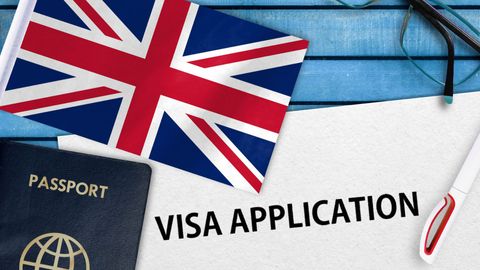How to Get a UK Visa? – Securing a UK visa is a pivotal step for individuals wishing to travel to the United Kingdom for various purposes, including tourism, work, study, or to join family members. Navigating the process can be daunting, but understanding the types of visas available, the requirements, and the application process can streamline the journey.

Types of UK Visas
Visit Visa
The Visit Visa allows individuals to enter the UK for tourism, visiting family or friends, or for business-related activities. It typically has a validity ranging from six months to ten years, depending on the purpose of the visit.
Work Visa
For individuals seeking employment opportunities in the UK, the Work Visa is essential. There are various categories under this visa, such as the Skilled Worker Visa, which requires sponsorship from a UK employer, and the Innovator Visa for entrepreneurs.
Study Visa
Students aspiring to pursue education in the UK must obtain a Study Visa. This visa permits enrollment in educational institutions and often allows part-time work during term and full-time work during holidays.
Family Visa
Individuals wishing to join family members residing in the UK may apply for a Family Visa. This includes spouses, partners, children, and other dependents of UK residents or citizens.
Requirements for a UK Visa
General Requirements
Regardless of the type of visa, there are common prerequisites. These include a valid passport, sufficient funds to support oneself during the stay, and a clean criminal record.
Specific Requirements for Each Visa Type
Each visa category has specific criteria applicants must meet. For instance, Work Visa applicants need a job offer from a licensed UK employer, while Study Visa applicants must present a confirmation of acceptance for studies (CAS) from a recognized institution.
Application Process
Online Application
Most UK visa applications are submitted online through the UK government’s official website. Applicants are required to fill out the relevant forms accurately and provide supporting documents.
Required Documents
Supporting documents vary based on the type of visa but commonly include proof of accommodation, financial stability, and purpose of visit. Additionally, applicants may need to provide biometric information at a visa application center.
Biometrics Appointment
Applicants are usually required to attend a biometrics appointment at a designated center to have their fingerprints and photograph taken. This information is used to verify identity and prevent identity fraud.
Visa Fees
Each visa type has associated fees, which vary depending on factors such as the duration of stay and the applicant’s country of residence. It’s essential to check the current fee schedule before applying.
Processing Time
The processing time for UK visas varies depending on several factors, including the type of visa and the volume of applications received. Generally, it can take anywhere from a few weeks to several months to receive a decision.
Appeals and Rejections
In the event of a visa refusal, applicants have the right to appeal the decision. It’s crucial to carefully review the reasons for refusal and provide additional documentation or clarification if necessary.
FAQs
How long does it take to get a UK visa?
The processing time for UK visas varies depending on several factors, but it typically ranges from a few weeks to several months.
Can I work in the UK with a visitor visa?
No, the Visitor Visa does not permit employment in the UK. Individuals wishing to work in the UK must obtain the appropriate Work Visa.
What should I do if my visa application is rejected?
If your visa application is rejected, you have the right to appeal the decision or reapply with additional documentation addressing the reasons for refusal.
Can I extend my UK visa?
In some cases, it’s possible to extend certain types of UK visas. However, eligibility criteria apply, and extensions must be applied for before the current visa expires.
Is it possible to apply for UK citizenship after holding a visa?
Yes, holding certain types of visas may eventually lead to eligibility for UK citizenship. However, specific requirements must be met, including residency and language proficiency.
In conclusion, obtaining a UK visa requires careful planning, understanding the visa options available, and meeting the necessary requirements. By following the outlined steps and being diligent throughout the application process, individuals can increase their chances of securing a UK visa successfully.
